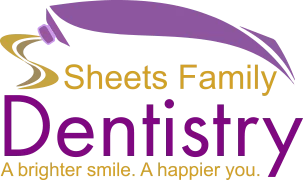
Early oral cancer detection refers to the timely identification of abnormal changes or lesions in the oral cavity, including the lips, tongue, gums, cheeks, and throat, before they progress into more advanced stages of cancer. This process involves routine screenings conducted by our dentist in Fowler, IN, during which visual examinations, palpation, and advanced screening technologies are utilized to identify suspicious signs or symptoms.
The benefits of early oral cancer detection are manifold, including increased treatment options, improved treatment outcomes, and higher survival rates. By detecting oral cancer in its early stages, patients can receive prompt intervention, potentially avoiding more aggressive treatments and reducing the risk of complications. Furthermore, early detection empowers individuals to make informed decisions about their oral health and seek appropriate medical care, ultimately leading to better long-term prognosis and quality of life.
Request an AppointmentRisk Factors for Oral Cancer
- Smoking cigarettes, cigars, pipes, or using smokeless tobacco increases the risk of developing oral cancer.
- Heavy alcohol consumption, especially when combined with tobacco use, significantly elevates the risk of oral cancer.
- Certain strains of HPV, particularly HPV-16, have been linked to an increased risk of oral cancer.
- Prolonged exposure to sun ultraviolet (UV) radiation can increase the risk of lip cancer.
- Neglecting oral hygiene practices, such as brushing and flossing regularly, can contribute to developing oral cancer.
- A diet low in fruits and vegetables and high in processed foods and unhealthy fats may increase the risk of oral cancer.
- Having a family history of oral cancer or other types of cancer may increase the risk of developing the disease.
- Individuals who have previously been diagnosed with oral cancer are at an increased risk of recurrence or developing a new primary cancer.
The Oral Cancer Screening Procedure
- Our dentist at Sheets Family Dentistry visually inspects the oral cavity, lips, tongue, gums, cheeks, and throat for any abnormalities, such as suspicious lesions, discolorations, or irregular tissue texture.
- Our dentist may gently palpate the tissues of the oral cavity and neck to feel for lumps, swellings, or other abnormalities that may indicate the presence of oral cancer.
- Advanced technologies, such as fluorescence visualization and tissue reflectance, may be used to enhance the detection of suspicious lesions and aid in the early diagnosis of oral cancer.
- If a suspicious lesion is identified during screening, a biopsy may be performed to obtain a tissue sample for further analysis and confirmation of diagnosis.
The Benefits of Early Oral Cancer Detection
Improved Treatment Outcomes
Early detection of oral cancer in Fowler, IN, allows for prompt treatment initiation, significantly improving outcomes and increasing the chances of successful treatment. By identifying oral cancer in its early stages, before it has spread to surrounding tissues or distant organs, healthcare providers can implement targeted therapies such as surgery, radiation, or chemotherapy, with a higher likelihood of achieving remission and long-term survival.
Reduced Treatment Complexity
When oral cancer is detected early, treatment options are typically less invasive and associated with fewer side effects. Early-stage oral cancers may be treated with minimally invasive procedures such as surgical excision or laser therapy, which preserve healthy tissue and minimize functional impairment. In contrast, advanced-stage oral cancers often require more aggressive treatments, such as extensive surgery or radical radiation therapy, which may result in greater physical and psychological burdens for the patient.
Preservation of Quality of Life
Early detection of oral cancer enables patients to maintain a higher quality of life throughout their treatment journey. By intervening before the disease has progressed to an advanced stage, healthcare providers can preserve vital functions such as speech, swallowing, and chewing, minimizing the impact of treatment on daily activities and overall well-being. Additionally, early treatment can help mitigate complications such as pain and nutritional deficiencies, allowing patients to maintain their independence. Contact us today to learn more!
Prevention of Disease Progression
Detecting oral cancer at an early stage can prevent the disease from spreading to nearby lymph nodes or distant organs, reducing the risk of disease progression and metastasis. Early intervention may also prevent the need for more aggressive treatments, such as extensive surgery or radical chemotherapy, which carry higher risks of complications and long-term side effects. By addressing oral cancer in its earliest stages, healthcare providers can optimize treatment outcomes and minimize the risk of recurrence.
Increased Survival Rates
Perhaps the most significant benefit of early oral cancer detection is the potential to increase survival rates and prolong life expectancy. Studies have shown that patients diagnosed with early-stage oral cancer have significantly higher survival rates compared to those diagnosed at a later stage. By identifying oral cancer through routine screenings, dental examinations by our general and family dentist, and self-awareness of potential symptoms, individuals can take proactive steps to protect their health and well-being.
Early oral cancer detection is vital for effective prevention and treatment strategies, offering patients the best chance of a positive outcome. By prioritizing regular dental check-ups, staying vigilant for signs and symptoms, and seeking timely medical attention, individuals can increase their chances of early diagnosis and improve their prognosis. Visit Sheets Family Dentistry at 98 S 100 E, Suite B, Fowler, IN 47944, or call (765) 884-0018 to schedule your dental check-up today and prioritize early oral cancer detection.
